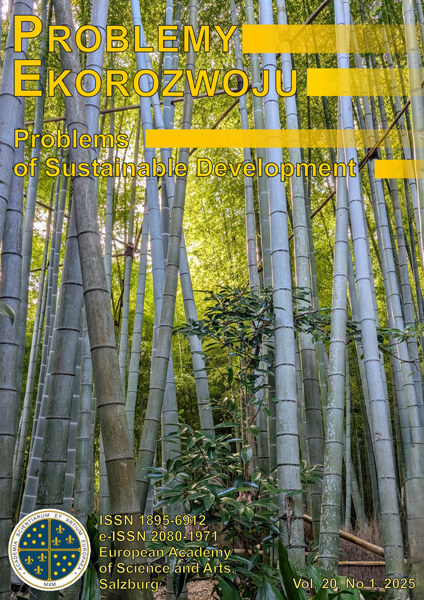Etyka w ekologii przemysłowej
Martina Maria Keitsch
Oslo School of Architecture and Design (Norwegia)
Abstrakt
Ekologia przemysłowa służy udoskonaleniu procesów przemysłowych w sposób, który przyniesie korzyści społeczeństwu, jak najmniej przy tym szkodząc środowisku. Koncepcja ekologii przemysłowej odpowiada na problemy środowiska w dziedzinach przemysłu i technologii oraz ma umożliwić zrównoważone zarządzanie działalnością człowieka poprzez zmniejszanie zużycia energii i surowców, zapewnianie odpowiedniej jakości życia, zmniejszanie negatywnych skutków działalności człowieka, a także utrzymywanie rentowności systemów dla przemysłu, handlu i rzemiosła. Ekologia przemysłowa oferuje metodologię systemów potrzebną do analizy przepływów materiałów oraz energii. Dlatego tez istotne znaczenie ma badanie związku między człowiekiem i przyrodą, działalności człowieka widzianej w szerszym kontekście środowiska biofizycznego, z którego pobieramy zasoby i do którego wyrzucamy nasze odpady.
Ponieważ ekologia przemysłowa została rozwinięta przez inżynierów i przyrodników, etyczny aspekt tej koncepcji jest często zaniedbywany. Odnaleźć go można jednak w powszechnie używanych antropocentrycznych twierdzeniach np. o łagodzeniu sprzeczności pomiędzy naturą i kulturą poprzez ekspertyzę naukową, odpowiednią technologię oraz zarządzanie społeczno-ekonomiczne.
Niniejszy artykuł pokazuje ekologię przemysłową w świetle etycznym poprzez odniesienie wartości do specyficznych cech metodologii systemów. Ekologia przemysłowa nie jest moralnie „neutralna”, lecz posiada ukryty potencjał normatywny, umożliwiający zaprojektowanie zrównoważonego świata.
Wstęp do niniejszego artykułu przedstawia metodologię systemów jako podstawowe pojęcie w ekologii przemysłowej. Drugi paragraf zawiera przegląd podstawowych trendów w etyce środowiskowej, pokazując związek ekologii przemysłowej z umiarkowanym biocentryzmem. Trzeci eksploruje trzy epistemologiczne cechy metodologii systemów: współzależność, różnorodność i złożoność, a także ich stosunek do wartości w etyce, takich jak odpowiedzialność, otwartość i współistnienie. Natomiast czwarty podaje powody uzasadniające dlaczego umiarkowany biocentryzm, jako dodatek do antropocentrycznego stanowiska, jest pozytywny dla ekologii przemysłowej.
Słowa kluczowe:
metodologia systemów, ekologia przemysłowa, etyka, antropocentryzm, biocentryzm, wartości, skutki normatywne, podejmowanie decyzjiBibliografia
ALLENBY B., 2003, History, Responsibility, Design, http://www.att.com/whs/ind_ecology/articles.
Google Scholar
APEL K.O., The Ecological Crisis as a Problem for Discourse Ethics, in: Ecology and Ethics, ed. Øfsti, A., Tapir, Trondheim 1992.
Google Scholar
ARISTOTLE, Metaphysics, Penguin Books, New York 1998.
Google Scholar
AYRES R., SIMONIS U.E. (eds.), Industrial Metabolism. Theory and Policy, UN University Press, Tokyo 1994.
Google Scholar
BERTALANNFY L.V., General Systems Theory, Development, Applications, George Braziller, New York 1968.
Google Scholar
CAPRA F., PAULI G. (eds.), Steering business toward sustainability. UN University Press, Tokyo, New York, Paris 1995.
Google Scholar
COOPER J.S., 2000, Categorization of Decision-Making Tools: from needs to analysis’, in: SETAC 21st Annual Meeting, Nashville.
Google Scholar
DRYZEK J., 1990, Green Reason: Communicative Ethics for the Biosphere, in: Environmental Ethics, vol. 12, Fall.
Google Scholar
FET A.M., Systems engineering methods and environmental life cycle performance within ship industry, dissertation thesis, Tapir, Trondheim 1997.
Google Scholar
FROSCH R.A., GALLOPOULUS N.E., 1989, Strategies for manufacturing, in: Scientific American 261(9), p. 94-102.
Google Scholar
EHRENFELD J.R., 2000, Industrial Ecology: paradigm Shift or Normal Science?, in: American Behavioral Scientist, vol. 44 no. 2, p. 229-244.
Google Scholar
EMERY F.E. (ed.) (1969), Systems methodology, Selected Readings, Harmondswoth, Middlesex, England.
Google Scholar
HABERMAS J., Moral consciousness and communicative action, MIT Press, Cambridge Mass. 1990.
Google Scholar
HABERMAS J., LUHMANN N., Theorie der Gesellschaft oder Sozialtechnologie – Was leistet die System-forschung?, Suhrkamp, Frankfurt 1973.
Google Scholar
INDICATORS of Sustainable Development, 1999, http://www.sustainable-development.gov.uk/sustainable/quality99/.
Google Scholar
KEITSCH M., HERMANSEN J., ØFSTI A., Sustainable wastewater management based on the concept of industrial ecology, Tapir, Trondheim 1999.
Google Scholar
KEITSCH M.,YONG G., Eco-planning and development in coastal communities in China. Industrial ecology and process change, Draft version, Dalian (China) 2002.
Google Scholar
KEITSCH, M. ISENMANN R., 2003, Industrial Ecology: a philosophically focused appraisal, in: Business Strategy and the Environment Conference, 15-16 September, Stamford Hall, University of Leicester, UK, p.72-84.
Google Scholar
KEITSCH M., OPOKU H., 2006, Une approche objective de la durabilité? in: Théorie des implications scientifiques et politiques de l’écologie industrielle, Ecologie et Politique, n°32, Paris.
Google Scholar
KRAS E., 2011, The Deep Roots of Sustainability, in: Problemy Ekorozwoju/Problems of Sustainable Development, vol. 6 no 1, p. 11-30.
Google Scholar
LOTKA A.J., Elements of Physical Biology. Wilkins and Wilkins, Baltimore 1925.
Google Scholar
LYOTRAD F., 1999, Introduction to The Postmodern Condition: A Report on Knowledge, http://www.idehist.uu.se/distans/ilmh/pm/lyotard-introd.htm.
Google Scholar
NAESS A., Ecology, Community and Lifestyle. Cambridge University Press, Cambridge 1989.
Google Scholar
WCED, Our Common Future, Oxford Paperbacks, Oxford 1987.
Google Scholar
PAPUZINSKI A., 2009, The Idea of Philosophy vs. Eco-Philosophy, in: Problemy Ekorozwoju/ Problems of Sustainable Development, vol. 4 no 1, p. 51-59.
Google Scholar
POSNER M. (ed.), Foundations of Cognitive Science, MIT Press, Cambridge, Mass 1989.
Google Scholar
POWERS. C.W, CHERTOW M.R., Industrial Ecology, Overcoming Policy Fragmentation, in: Thinking Ecologically, the next generation of environmental policy, eds. Chertow, Esty, Yale University Press, New Haven – London 1997.
Google Scholar
REDCLIFT M.R., 2009, Sustainable Development (1987-2005) – an Oxymoron Comes of Age, in: Problemy Ekorozwoju/Problems of Sustainable Development, vol. 4 no 1, p. 33-50.
Google Scholar
RESCHER N., Cognitive Systematization. A Systems-Theoretic Approach to a Coherentist Theory of Knowledge, Totowa, Roma and Littlefield, Oxford 1979.
Google Scholar
ROLSTON H. III, Environmental Ethics: Duties to and Values in the Natural World, Temple University Press, Philadelphia 1988.
Google Scholar
RUSSEL D.L., 2010, Curmudgeon’s Thoughts on Sustainability, in: Problemy Ekorozwoju/Problems of Sustainable Development, vol. 5 no 1, p. 15-22.
Google Scholar
SPAEMANN R., Lecture, Bavarian Academy of Fine Arts, Munich, Germany 8th February 2000.
Google Scholar
SMITH R.L. Ecology and Field Biology, Harper Collins, New York 1990.
Google Scholar
TUZIAK A., 2010, Socio-Economic Aspects of Sustainable Development on Global and Local Level, in: Problemy Ekorozwoju/Problems of Sustainable Development, vol. 5 no 2, p. 39-49.
Google Scholar
Autorzy
Martina Maria KeitschOslo School of Architecture and Design Norwegia
Statystyki
Abstract views: 15PDF downloads: 6
Licencja

Utwór dostępny jest na licencji Creative Commons Uznanie autorstwa – Na tych samych warunkach 4.0 Miedzynarodowe.




